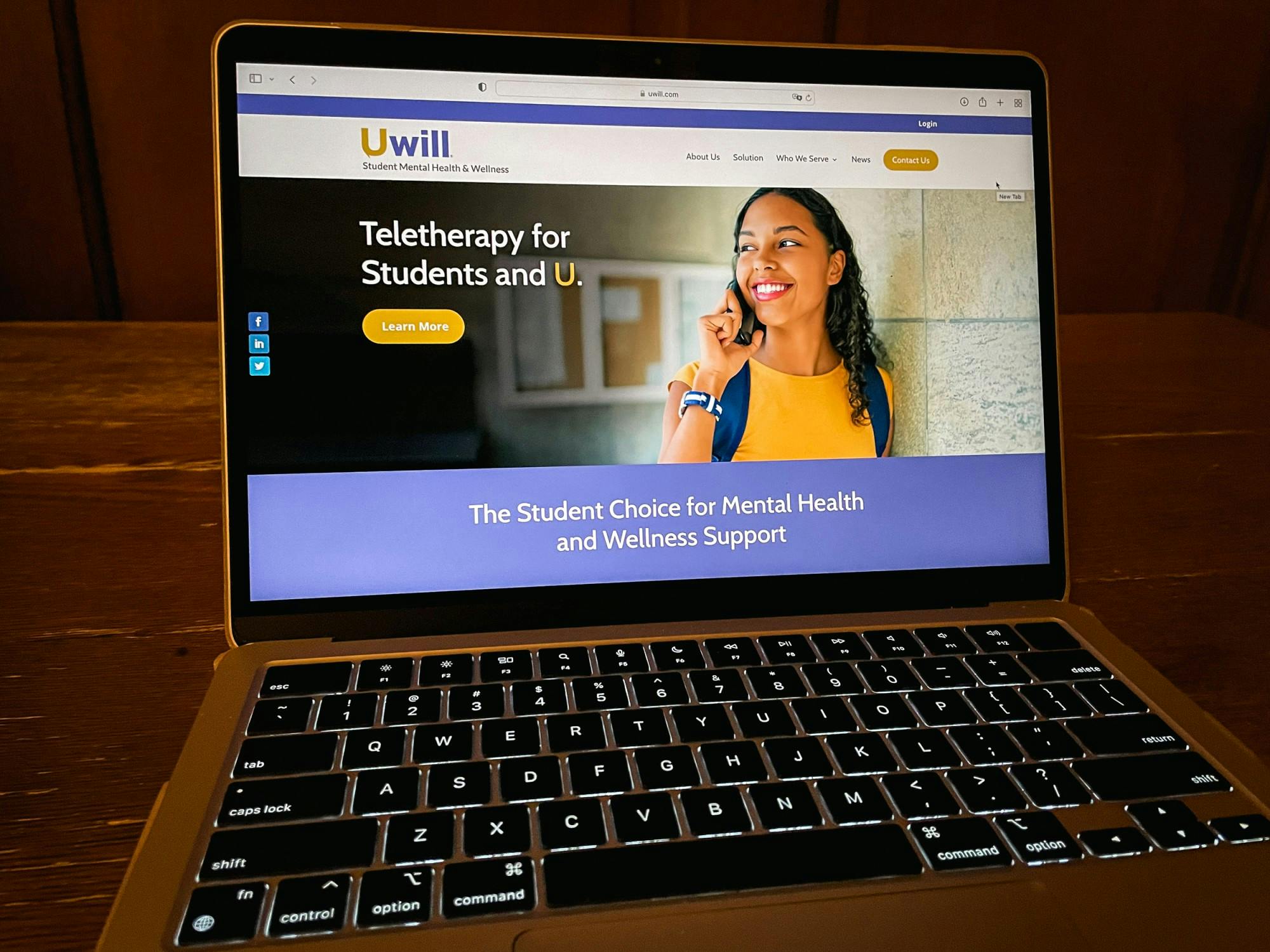Beginning Nov. 1, all Dartmouth students will be eligible for free, unlimited access to Uwill, a student teletherapy provider that offers licensed mental health counseling online, according to an announcement from the College.
The new teletherapy services come alongside other mental health measures, including an extension of the non-recording option deadline to Oct. 10 and the Day of Caring on Oct. 21, according to Dartmouth Student Government president David Millman ’23. He added that the DSG advocated for teletherapy services to address students’ mental health needs in light of recent student deaths.
According to Millman, students will be able to communicate with a counselor that they chose to work with via video, chat or messaging and have access to 24-hour crisis support. This includes graduate students as well as students on an off-term, personal leave of absence or medical leave. While Uwill is a worldwide service, the College will only offer access to Uwill’s teletherapy services within the United States, according to Millman and DSG vice president Jessica Chiriboga ’24.
“It’s a great way to keep our community mentally healthy,” Sri Korandla ’26 said. “Therapy is something that is definitely good for your general well-being. It’s not something that you have to do only if you have a problem. It’s good to work through your week with a therapist.”
Michael London, founder and CEO of Uwill, said that there are two main components of Uwill’s teletherapy services that will be offered to Dartmouth students: “Umatch” counseling services and “Uhelp” emergency crisis connection.
London said that with Umatch, students can decide which counselor they would like to work with based on their needs and preferences. From there, students can schedule as many sessions as they would like with their counselor. Should a student decide that their counselor is not a good fit, they can change their counselor at any time, according to London.
Alternatively, Uhelp offers students access to 24-hour crisis support that connects them directly to a therapist trained in trauma, according to London. Whereas other crisis connections have an automated telephone system or other automated technology, London said that Uwill has “eliminated all friction associated with [intakers and phone trees].” He added that if a student uses Uhelp, a Uwill employee will follow up with them to ask them to consider receiving therapy from Uwill.
The DSG has been discussing the implementation of teletherapy since the fall term of 2021, according to Millman and Chiriboga. They explained that former Student Assembly president Jennifer Qian ’22 and vice president Maggie Johnston ’22 initiated the process of searching for a teletherapy service. From there, the DSG collaborated with the Dartmouth Mental Health Union and director of Dartmouth Counseling Heather Earle to facilitate discussions around the logistics of implementing teletherapy services. In these meetings, they navigated through requirements such as speaking to College President Phil Hanlon, Provost David Kotz, and interim Dean of the CollegeScott Brown, according to Millman.
“I think it is really important to see here that student advocacy can work,” Millman said. “This was completely a student project, directed by demonstrated student need.”
During the process of advocating for teletherapy services, Chiriboga explained that the DSG had to decide which service would best accommodate students’ needs at the College.
“We looked at TimelyMD. We looked at Uwill, and we looked at some other options and tried to determine what works best for us,” Chiriboga said. “We decided upon choosing Uwill because it was the best. It offered 24/7 teletherapy at no cost, and it was unlimited.”
While Dartmouth will adopt Uwill’s services beginning on Nov. 1, Millman said that there is still room for student feedback.
“We will be consistently evaluating the program. We don’t want this to be something that students aren’t having a good experience with,” Millman said. “We’re going to be very active in trying to hear from students,if they’re comfortable sharing about their experiences while using Uwill.”
Millman said that students who would like to share their experiences and feedback with Uwill can do so directly with the Dartmouth Student Government or the Counseling Center.
Chiriboga said that the implementation of Uwill does not intend to be used as the sole resource available to address students’ mental health needs.
“I can never — as a friend, as a classmate, as a peer, ever provide, or recommend — one solution, because one resource is not going to work for everybody,” Chiriboga said. “I encourage students to show kindness and to speak with their friends and their loved ones about different options that might be right for them.”




